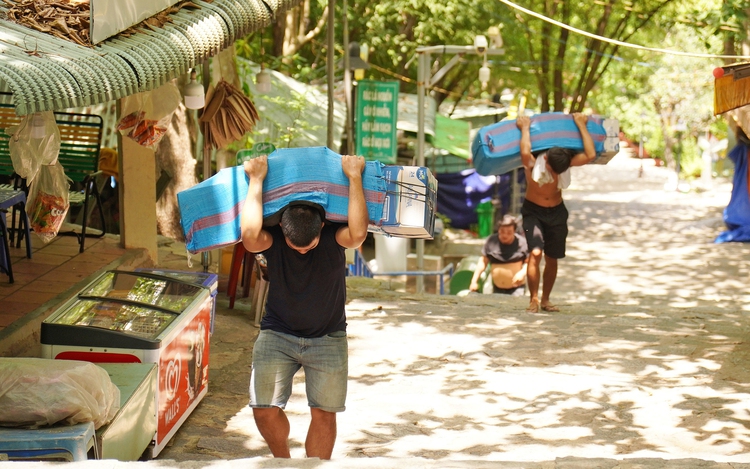
Porters climb more than 1,200 meters of steep, rugged mountain path with heavy loads on their backs toward Linh Son Thanh Mau Shrine, part of the famed Ba Den Pagoda complex in Tay Ninh Province, southern Vietnam. Photo: An Vi
On their shoulders are towering bundles of bottled drinks, sacks of rice, blocks of ice, and offerings for makeshift stalls scattered along the mountain's winding slope.
The path spans more than 1,200 meters and includes 1,580 uneven stone steps.
For tourists, it is a strenuous climb even with empty hands. For the porters, it is a job they do every day.
By 5:30 in the morning, the base of Ba Den Mountain, located about 95 kilometers from downtown Ho Chi Minh City and standing at approximately 986 meters above sea level, is already buzzing.
A few porters gather at a small roadside stall, warming up with coffee before heading out.
Among them is Le Anh Kiet, 30, the team leader.
With his phone in hand, he takes delivery orders from vendors on the mountain and begins assigning tasks to his team.
That morning, Kiet and a partner were the first to ascend, carrying two 30-kilogram sacks of ice to a drink stall 300 meters up.
They wrapped the sacks in blankets to avoid getting soaked and to shield their backs from the cold.
After reaching the stall, they continued up toward the shrine to deliver two more sacks.
“We earn about VND100,000 [US$3.8] for each delivery like this,” said Kiet during the climb.
“VND70,000 [$2.7] goes to us for labor.”
The trail was quiet except for birdsong and the porters’ labored breathing.
After 300 meters, Kiet stopped and turned to Tuoi Tre (Youth) correspondent.
“You should probably stay here,” he said with a grin.
“If you follow me all the way up, you might not even make it back down.”
An hour later, Kiet was already descending, tapping on his phone as he walked.
Back at the base, six other porters waited for instructions. Kiet called out orders.
“Ten crates of water. Whoever did less yesterday, bring them to Mrs. Chin’s place. Just two of you. Too many people makes it a waste of time and effort.”
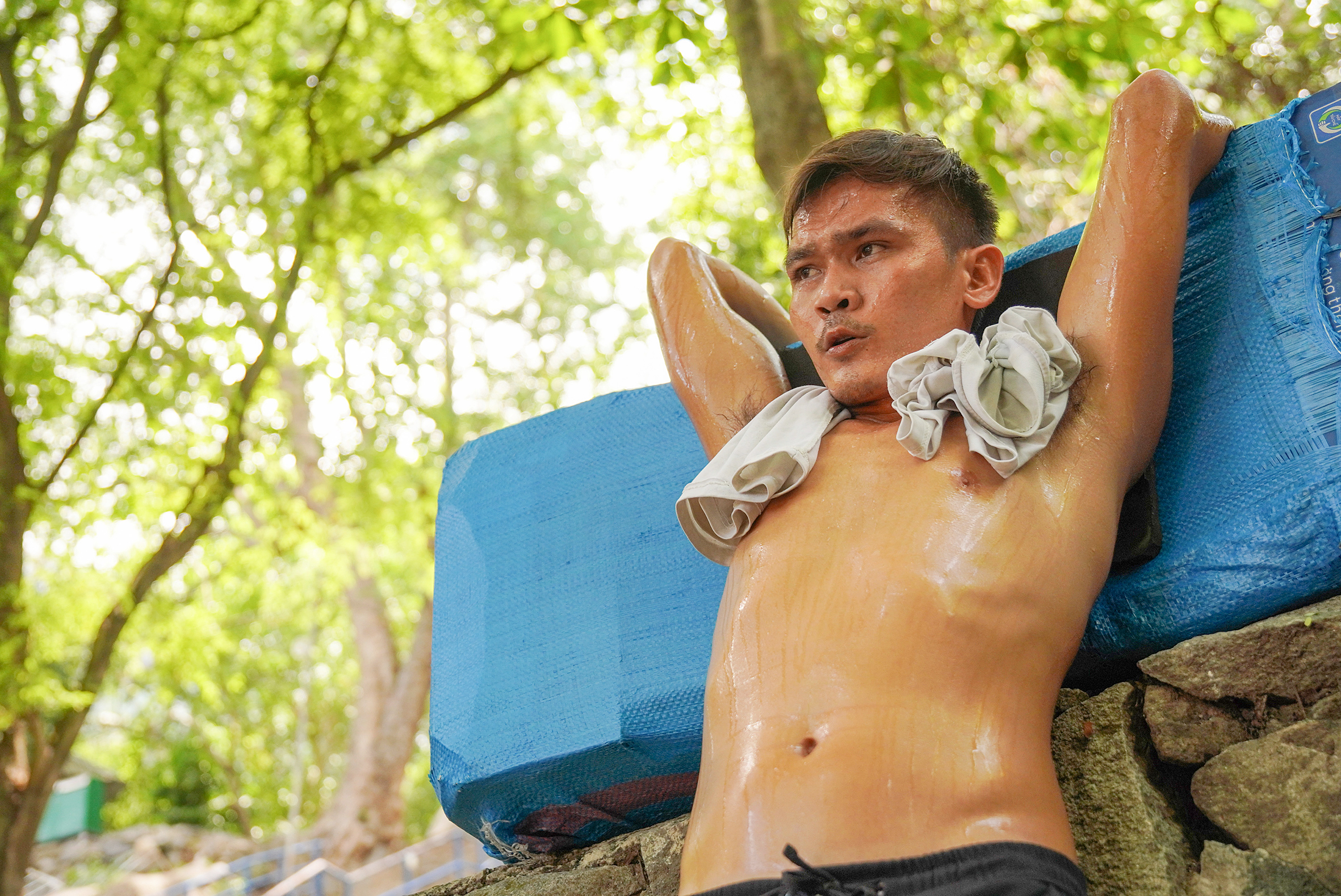
Nguyen Bao Linh takes a break while carrying crates of bottled water up Ba Den Mountain in Tay Ninh Province, southern Vietnam. Photo: An Vi
Water crates weigh around 12 kilograms each, and that morning, the team’s two strongest men, Nguyen Hoang Phuc and Nguyen Bao Linh, took on five each.
Sixty kilograms per person. They didn’t think twice.
“We’d carry more if there were more loads,” said Linh, brushing off the weight as routine.
But even they admit the work takes a toll.
“I can handle more, sure,” said Phuc. “But after four trips, I am exhausted. The experienced guys know how to pace themselves.”
Kiet helped them hoist the crates and reminded them to secure the load properly. Water jugs tend to shift around, unlike sand or bricks.
Phuc, muscular and broad-shouldered, admitted Linh has better endurance.
“Size doesn’t matter,” Linh said with a grin.
“I rest maybe three times on the way up. He stops twice as often.”
Tourists occasionally pass by, winded after walking just a third of the way up. Most carry nothing.
With the weight they carry, the porters plan their breaks carefully.
“You have to stop at a high step,” Linh explained.
“Otherwise, it's hard to lift the load again.
"With ice, you only get a few seconds to rest or it starts melting.”
By late morning, porters descend drenched in sweat, backs bent from the strain.
They rarely pause except to eat or drink quickly.
When asked how they do it, most reply with the same shrug: “You get used to it.”
Back at the base, some ate instant noodles. Others munched on rice and leftover breakfast.
Phuc peeled off his soaked shirt to reveal pain-relief patches and cupping marks.
“Joint pain is part of the job,” he said.
“Even I’ve got a herniated disc.
"When it’s cold, the pain is worse. Sometimes you can’t sleep at night.”
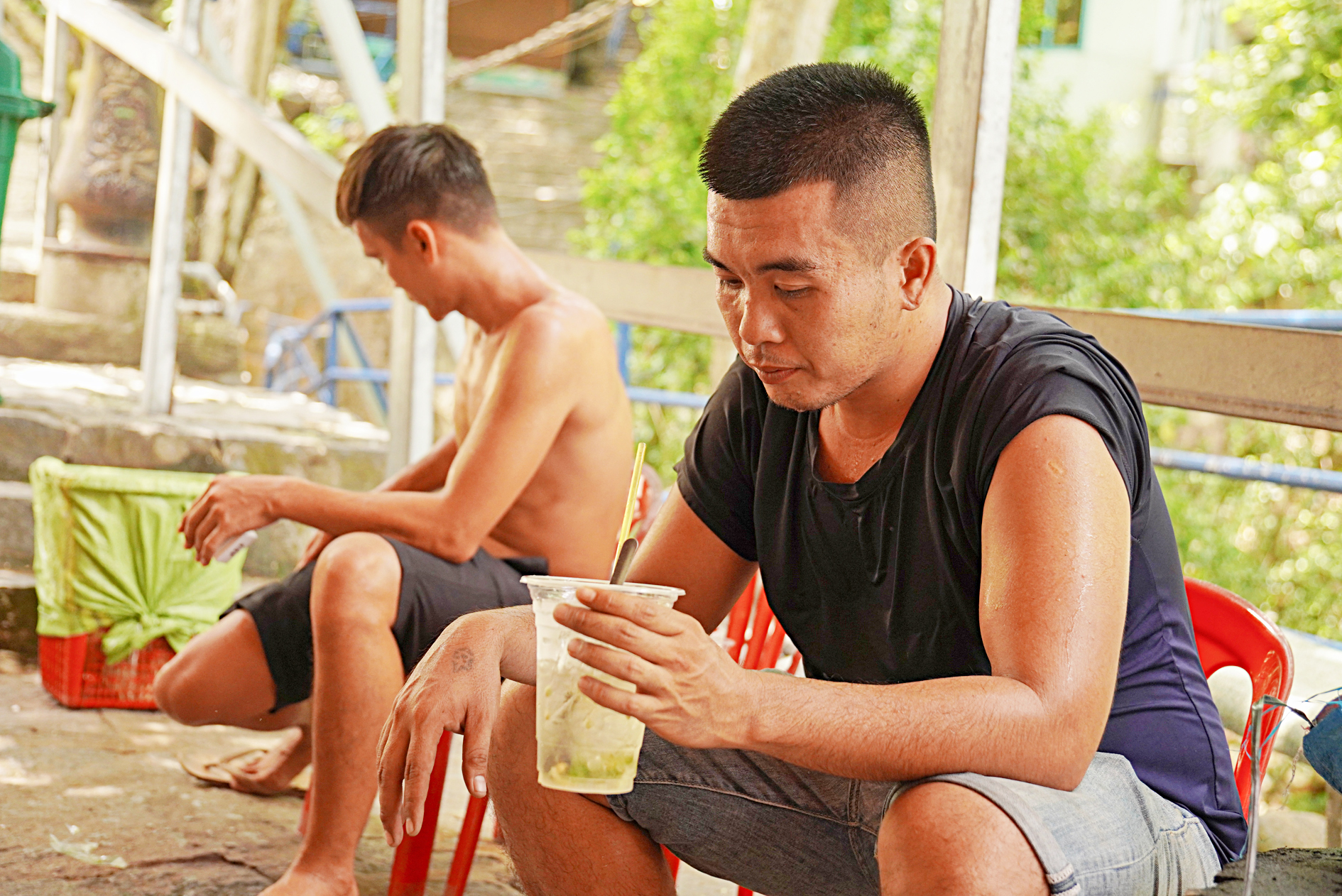
Porters take a break after their climb up Ba Den Mountain in Tay Ninh Province, southern Vietnam. Photo: An Vi
People often assume the work is easy, said Kiet, but many new hires quit after a day.
“They carry one load and can’t get out of bed the next morning.”
Dry weather is hard. Rainy season is harder.
“It gets slippery,” Phuc said.
“If you drop a crate of soft drink, maybe you can recover some.
"But if it’s eggs or something fragile, you're done. You pay for it.”
Sweat for every penny
There is no monthly salary. Everything is paid per kilogram.
With construction materials like bricks or sand, they earn about VND3,000 ($0.1) per kilogram.
Most porters earn VND200,000 to VND300,000 ($7.6–11.5) per day.
During peak holiday seasons, it can rocket into the millions.
Sometimes, they are hired to carry massive items like wooden altars, pillars, or temple bells.
Those loads can weigh a ton and require 20 men using long poles to lift and balance the cargo.
“It’s like moving a cannon,” said Kiet.
“One, two, one, two, all the way to the top.
"But the pay is good, and we split it fairly.”
Nearly invisible to the crowds of tourists and pilgrims, these porters are the hidden lifeline of the hillside market on Ba Den Mountain.
They carry everything that keeps the economy going. And they carry it on their backs.


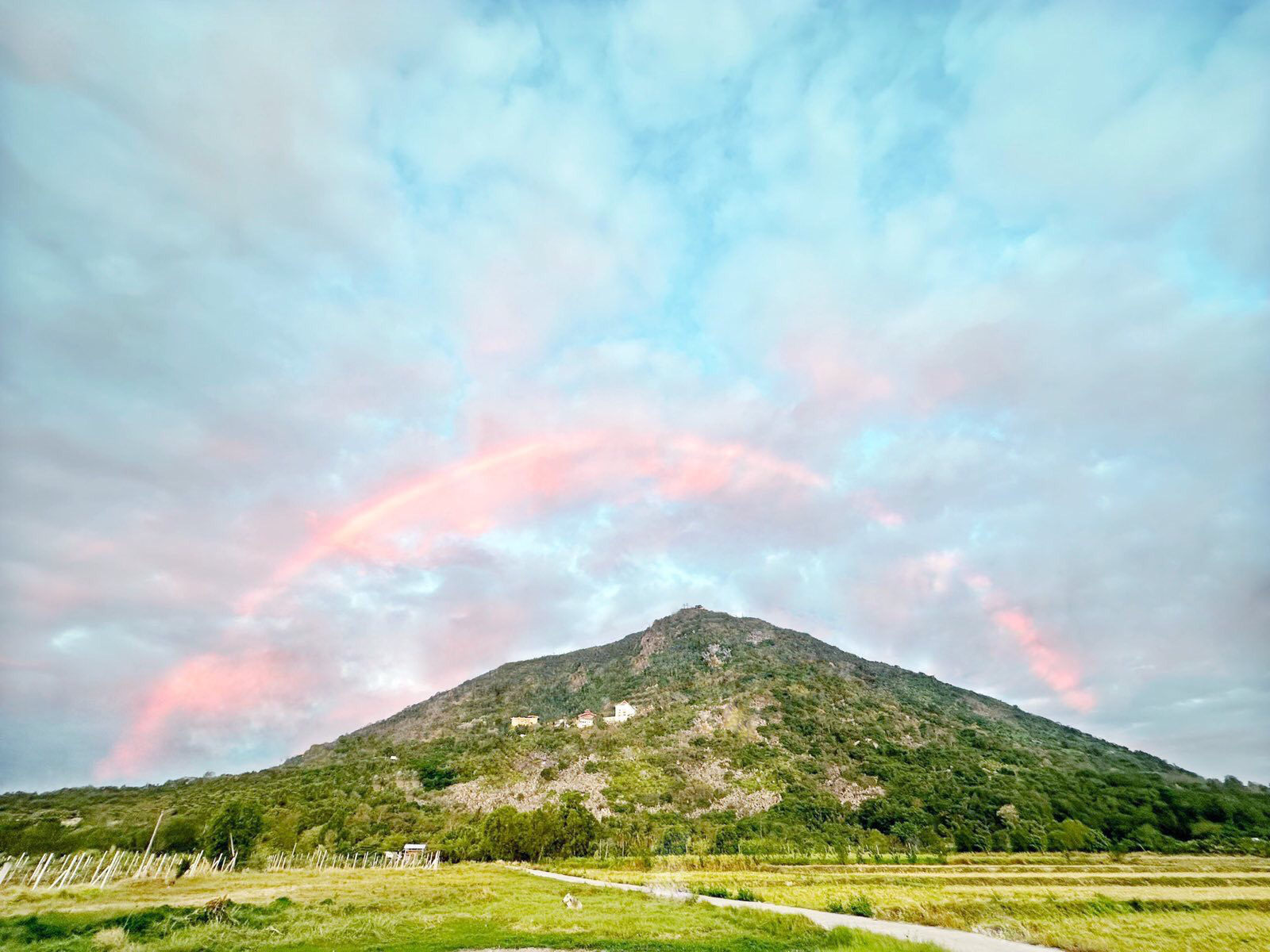
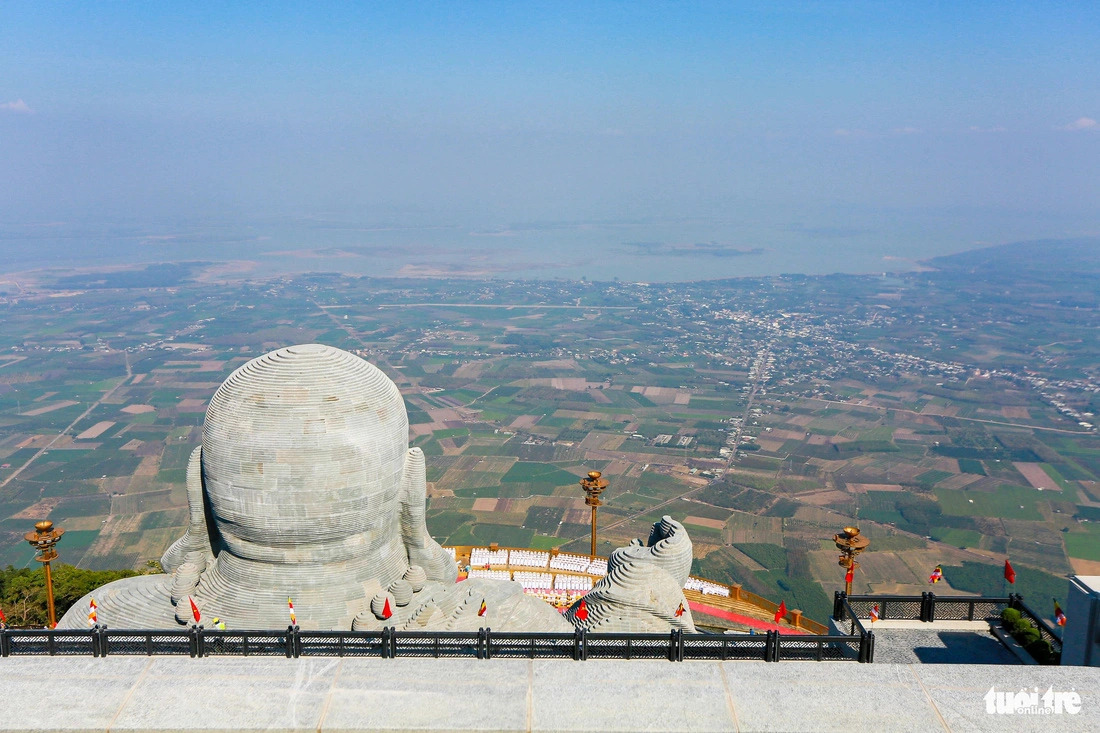
Max: 1500 characters
There are no comments yet. Be the first to comment.